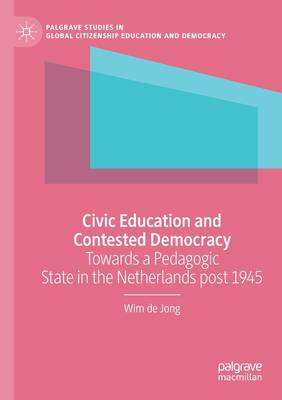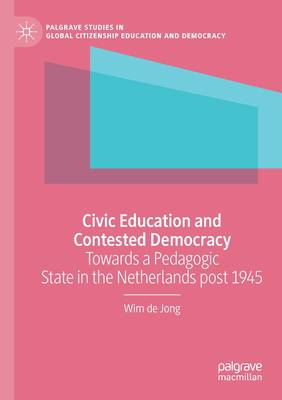
- Retrait gratuit dans votre magasin Club
- 7.000.000 titres dans notre catalogue
- Payer en toute sécurité
- Toujours un magasin près de chez vous
- Retrait gratuit dans votre magasin Club
- 7.000.0000 titres dans notre catalogue
- Payer en toute sécurité
- Toujours un magasin près de chez vous
Civic Education and Contested Democracy
Towards a Pedagogic State in the Netherlands Post 1945
Wim de JongDescription
This book explores citizenship education and democracy in the Netherlands. From the Second World War to the present day, debates about civic education and democracy have raged in the country: this book demonstrates how citizens, social movements and political elites have articulated their own notions of democracy. Civic education illustrates democracy as an essentially contested concept - the transmission of political ideals highlights conflicting democratic values and a problem of paternalism. Ultimately, who dictates what democracy is, and to whom? As expectations of citizens rise, they are viewed more and more as objects of a pedagogical project, itself a controversial notion. Focusing on what democracy means practically in society, this book will be of interest to scholars of citizenship education and post-war Dutch political history.
Spécifications
Parties prenantes
- Auteur(s) :
- Editeur:
Contenu
- Nombre de pages :
- 250
- Langue:
- Anglais
- Collection :
Caractéristiques
- EAN:
- 9783030563004
- Date de parution :
- 16-10-21
- Format:
- Livre broché
- Format numérique:
- Trade paperback (VS)
- Dimensions :
- 148 mm x 210 mm
- Poids :
- 344 g

Les avis
Nous publions uniquement les avis qui respectent les conditions requises. Consultez nos conditions pour les avis.






